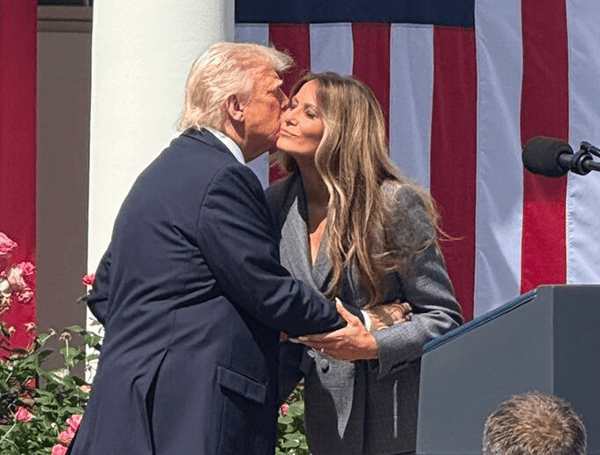President Donald Trump signed the “Take it Down Act” into law Monday, a landmark piece of legislation aimed at combating the nonconsensual online distribution of sexually explicit images and videos, including those generated using artificial intelligence. The new law imposes criminal penalties and mandates swift action from websites to remove such content.
The legislation makes it illegal to publish authentic or computer-generated sexually explicit images and videos without consent. Violators face mandatory restitution and criminal penalties, including potential prison time and fines. The law also targets those who threaten to publish these intimate visuals.
READ: White House Press Secretary Details “One Big, Beautiful Bill” As Package Moves Forward
A key component of the “Take it Down Act” requires websites, under the enforcement of the Federal Trade Commission (FTC), to remove reported imagery within 48 hours of receiving a victim’s request. Websites must also make reasonable efforts to remove any copies of the material.
“With the rise of AI image generation, countless women have been harassed with deep fakes and other explicit images distributed against their will. This is… wrong, and it’s just so horribly wrong,” President Trump stated during the signing ceremony in the White House Rose Garden. “It’s a very abusive situation, like, in some cases, people have never seen before. And today we’re making it totally illegal.”
First Lady Melania Trump, a strong advocate for the legislation, attended the signing ceremony and emphasized the dangers of AI and social media.
“This legislation is a powerful step forward in our efforts to ensure that every American, especially young people, can feel better protected from their image or identity being abused through nonconsensual, intimate imagery,” she said. “Artificial Intelligence and social media are the digital candy for the next generation — sweet, addictive and engineered to have an impact on the cognitive development of our children, but unlike sugar, these new technologies can be weaponized, shape beliefs and sadly, affect emotions and even be deadly.”
READ: Michigan And New York Lawmakers Seek Answers From Harvard Over Chinese Military, Iran Ties
The “Take it Down Act” is only the sixth bill President Trump has signed into law in his second term. This relatively low number of bills signed is noteworthy compared to historical precedents.
The bill received overwhelming bipartisan support, passing the Senate by unanimous consent and the House with a 409-2 vote. Senators Ted Cruz (R-TX) and Amy Klobuchar (D-MN) sponsored the bill in the Senate, while Representative Maria Elvira Salazar (R-FL) introduced the House version.
The bill’s sponsors highlighted the need for federal legislation, citing the inconsistent nature of state laws addressing sexual deepfakes.
President Trump had previously mentioned the bill in March, jokingly stating he would use it for himself due to perceived unfair treatment online. The First Lady also held an event on Capitol Hill to promote the legislation, emphasizing the need to protect young people from the harmful effects of deepfakes and other malicious online content.
READ :Regeneron To Acquire 23andMe In Bankruptcy Sale, Sparking Data Privacy Concerns
“It’s heartbreaking to witness young teens, especially girls, grappling with the overwhelming challenges posed by malicious online content like deepfakes,” First Lady Melania Trump said. “This toxic environment can be severely damaging. We must prioritize their well-being by equipping them with support and tools necessary to navigate this hostile digital landscape. Every young person deserves a safe online space to express themselves free without the looming threat of exploitation or harm.”
Please make a small donation to the Tampa Free Press to help sustain independent journalism. Your contribution enables us to continue delivering high-quality, local, and national news coverage.
Connect with us: Follow the Tampa Free Press on Facebook and Twitter for breaking news and updates.
Sign up: Subscribe to our free newsletter for a curated selection of top stories delivered straight to your inbox.
